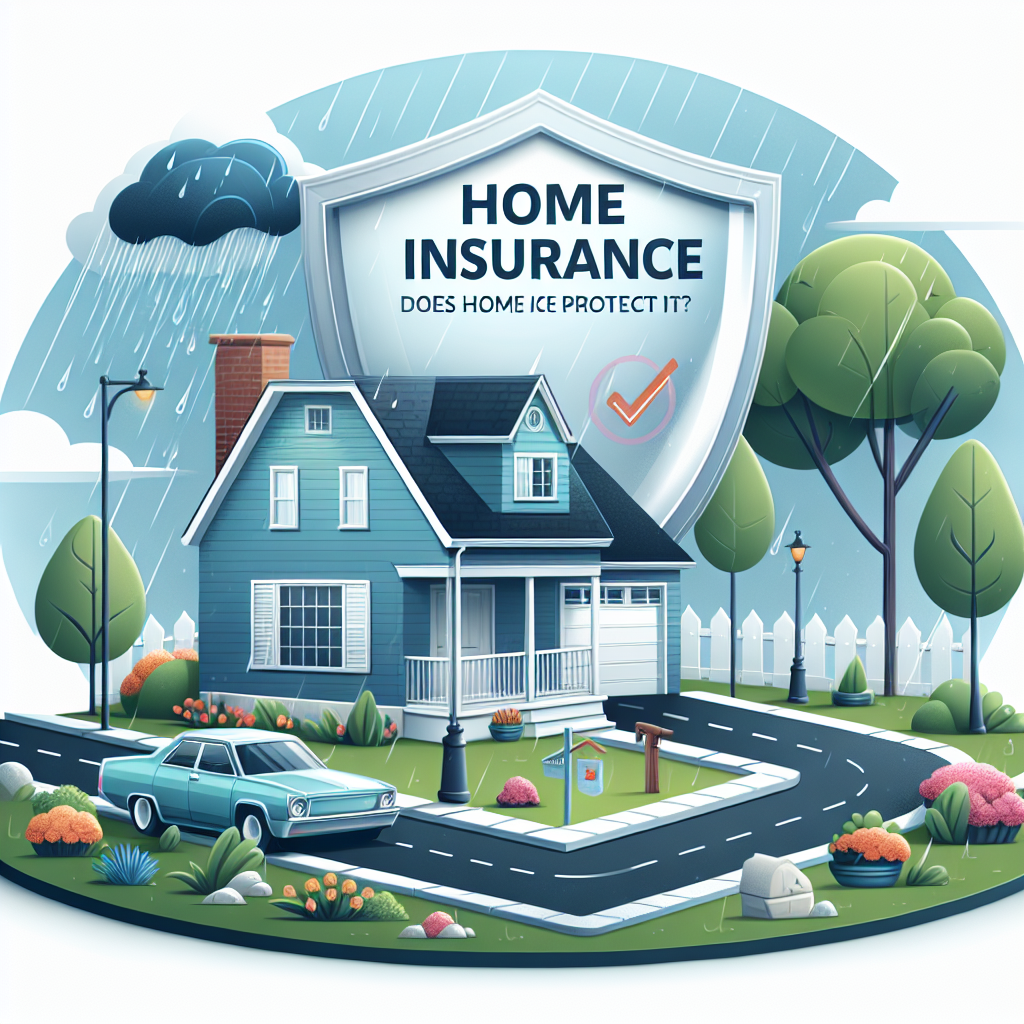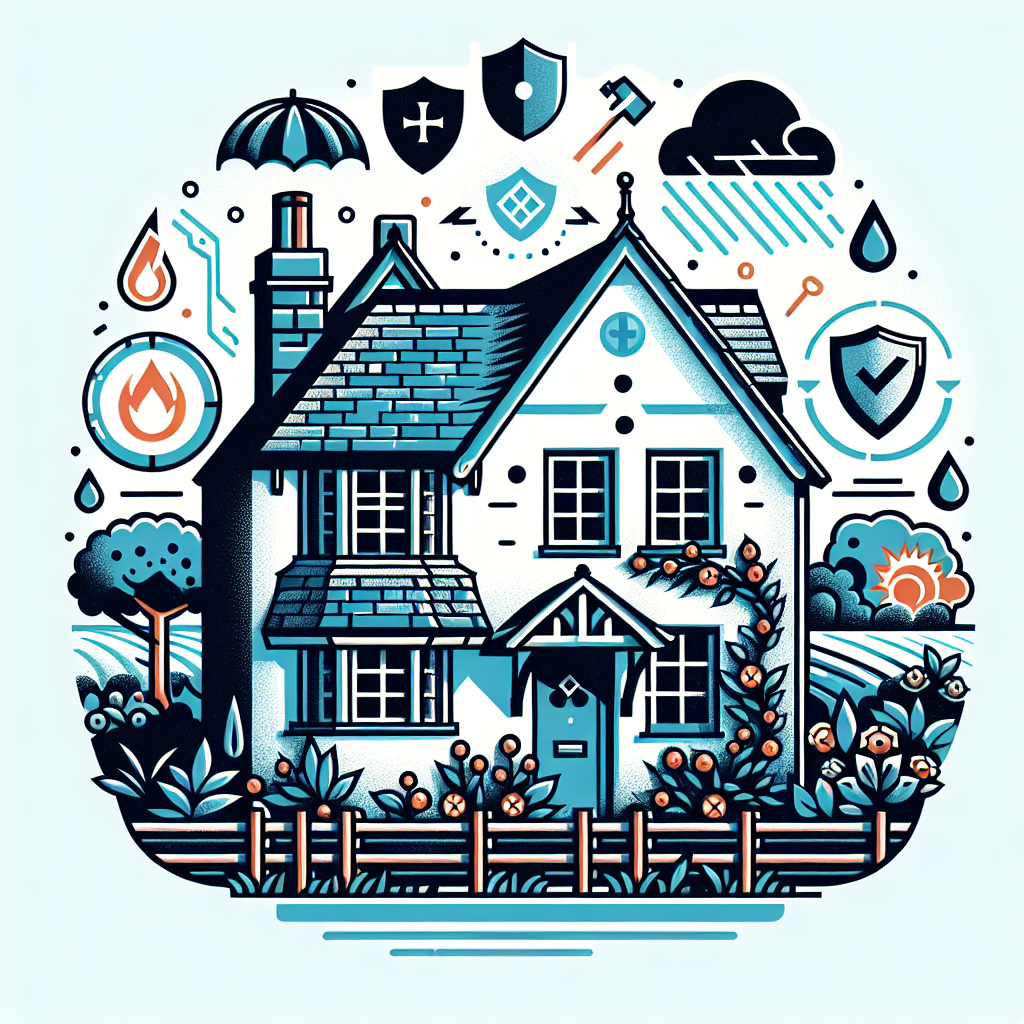Filed under Home Insurance on
Driveway Coverage: Does Home Insurance Protect It?

When considering home insurance policies, most homeowners focus primarily on coverage for their actual home structure, personal belongings, and liability protection. However, it's equally important to understand how insurance policies extend to other aspects of your property, such as driveways. Many homeowners question whether driveway coverage is part of their home insurance policy. This clarification is essential for ensuring that you are adequately protected in case of damage or unforeseen events.
Understanding Driveway Coverage in Home Insurance
Home insurance typically offers a variety of protections, but the specifics can significantly vary depending on the provider and policy type. Driveways can often be overlooked, despite being a key element of your property. In this guide, we’ll delve into whether a standard home insurance policy covers driveway damages and what you can do to ensure your driveway is protected.
What Does a Standard Home Insurance Policy Cover?
Before focusing specifically on driveways, it's essential to understand the basic elements that a standard home insurance policy covers. Typically, these include:
- Dwelling Protection: Coverage for the home's structure, including walls, roof, and built-in appliances.
- Personal Property Protection: Ensures financial support for belongings inside the home if they are damaged or stolen.
- Liability Protection: Protects you against legal claims if someone is injured on your property.
- Additional Living Expenses: Pays for temporary relocation if the home is uninhabitable due to covered damage.
Position of Driveway Coverage in Your Policy
The key question many homeowners ask is, does home insurance protect driveways? The answer can often be more nuanced than a straightforward yes or no. In many cases, a driveway is considered a part of ‘other structures’ coverage, an extension that includes parts of your property that aren't directly attached to the dwelling, such as garages, fences, and sheds.
This other structures coverage is generally included in most typical homeowners insurance policies, though it sometimes needs to be affirmed with your insurance provider. Typically, other structures are covered up to a certain percentage (often 10%) of the dwelling coverage. However, what’s actually covered can depend on numerous factors, like the cause of damage.
Common Causes of Driveway Damage
Understanding how damage occurs can further clarify when and if home insurance might cover these instances. Driveway damage can often result from:
- Natural Disasters: Events like earthquakes, floods, and hurricanes can significantly impact driveways.
- Wear and Tear: Regular usage can result in cracks, potholes, or surface degradation.
- Accidents: Vehicles accidentally striking your driveway might cause damage.
- Tree Roots: Nearby trees can extend their roots beneath the driveway, causing structural issues above.
Among these, damages resulting from natural disasters and accidents are, typically, what might be eligible under a standard home insurance policy, though it largely hinges on insurer policies and the specific event causing the damage.
When Is Driveway Damage Not Covered?
Even under the other structures coverage, there are scenarios where a standard home insurance policy might not offer driveway coverage, such as:
- Gradual Deterioration: Standard wear and tear is generally not covered by insurance policies.
- Negligence: If damage results from not maintaining the driveway properly, insurers are unlikely to provide compensation.
- Specific Exclusions: Certain natural disasters may require additional coverage beyond standard policies, like floods or earthquakes.
- Homeowner Fault: Any self-caused damages might not be covered under the policy.
Steps to Ensure Adequate Driveway Protection
Knowing whether your home insurance protects the driveway is only the first step. To ensure comprehensive coverage, consider the following actions:
Review and Understand Your Current Policy
It’s vital to thoroughly review your existing policy documents. Check explicitly for mentions of ‘other structures’ and the details regarding coverage limits or exclusions.
Contact Your Insurance Provider
If your existing policy lacks clarity on driveway coverage, a conversation with your insurance provider can be beneficial. They can provide detailed insights regarding what your current policy includes and any potential additional coverage options available.
Consider Specific Add-Ons or Riders
Consider adding specific riders or endorsements to your home insurance policy that cover notable exceptions like earthquakes or additional coverage for wear and tear. This can fill gaps left by a standard home insurance policy.
Additionally, homeowners might consider policies like special perils insurance, which is more comprehensive, covering a broad scope of incidents that may impact features like driveways.
Regular Maintenance and Upkeep
Prevention is often better than cure. Regular driveway maintenance ensures longevity and minimizes damage risk, reducing potential claim rejections grounded in maintenance negligence.
Conclusion
In summary, while home insurance may provide some level of protection for driveways under the ‘other structures’ coverage, significant variance exists between policies and insurers. It's crucial to thoroughly scrutinize your policy and consult with professionals to ensure you have the appropriate protections in place. As a homeowner, understanding the specifics of driveway coverage within your home insurance policy is invaluable for safeguarding against unforeseen costs and maintaining the structural integrity of your property.
In the end, addressing these considerations today will help avoid unexpected financial setbacks tomorrow, ensuring your home's driveway coverage is robust and ready should the unexpected occur.





